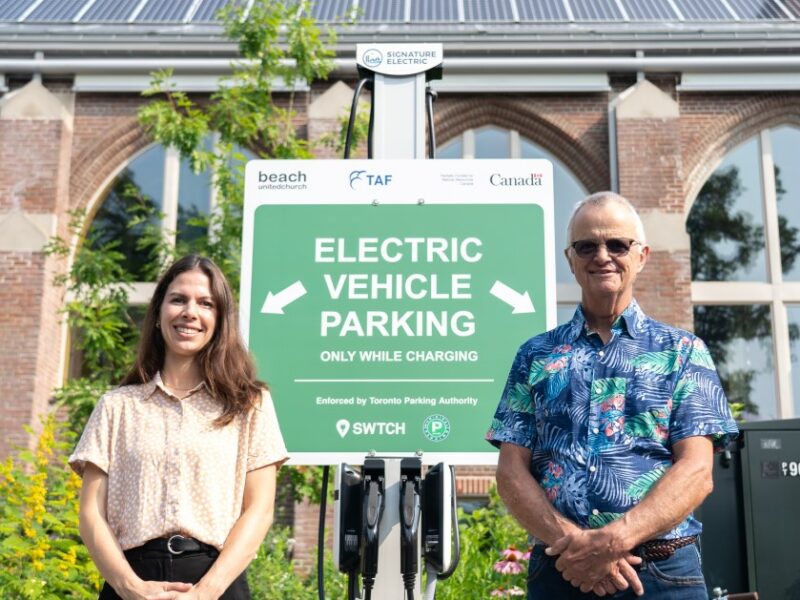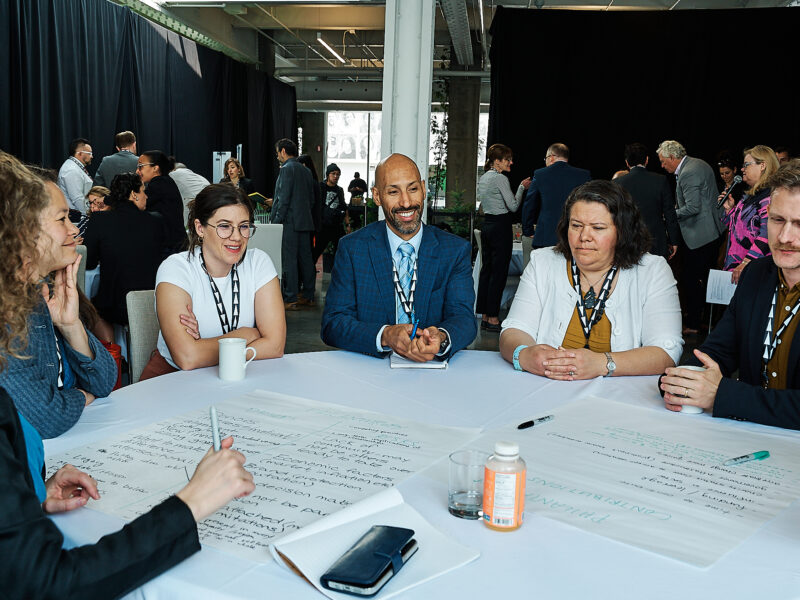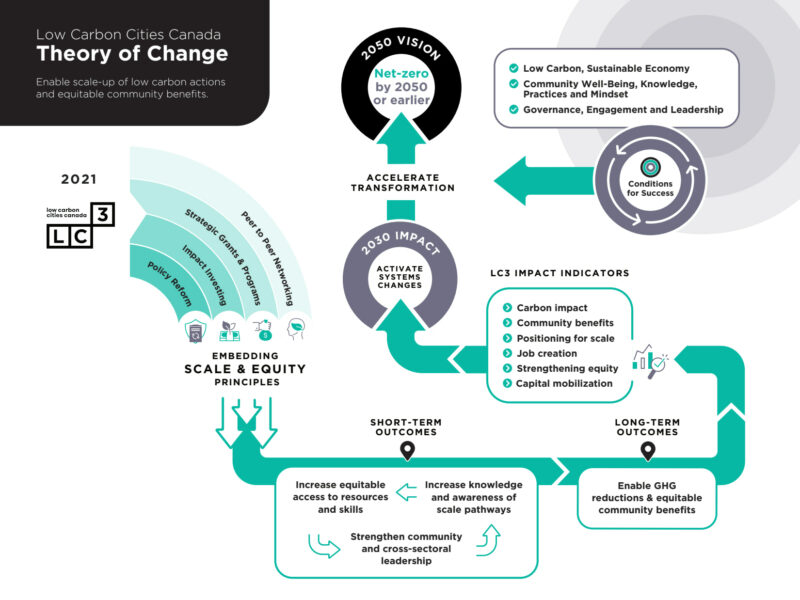December 2023
This year, LC3 launched an equity metric to evaluate how equity is being integrated into the Network’s new grants, programs and direct investments. This blog post highlights our guiding principles, information on the equity metric, examples of local equitable climate action, reflections on urgency and more.
October 2023
EV home charging offers many benefits, but many multi-family building residents do not have access to it. LC3 Centre The Atmospheric Fund (TAF) is tackling the issue from various angles, including an EV Station Fund in the Greater Toronto and Hamilton Area. Read the full story today.
August 2023
HCi3 provided funding to a unique community partnership. This pilot project by O.N.E. Community Economic Development Society and The ReCover Initiative takes aim at two intersecting challenges: a systemic employment gap facing the African Nova Scotian community and the need to quickly scale up deep energy retrofits.
July 2023
At the Montreal Climate Summit, collaboration was on our minds. But what climate solutions might be best suited to the collaborative approach? Here are five.
June 2023
Metro Vancouver’s LC3 Centre, ZEIC, launched an innovative program that aims to reduce the embodied carbon in new home builds by 40%, coinciding with the City of Vancouver’s target to reduce embodied emissions by 40% by 2030. Learn how ZEIC and ZEBx are gathering expertese from collaborators and researchers to reduce embodied carbon emissions in BC.
November 2022
LC3’s Theory of Change (ToC) illustrates the impact that the LC3 Network aims to achieve, the process through which we intend to work towards that impact, and the underlying assumptions. The ToC clarifies LC3’s unique role within a broader ecosystem of stakeholders, change agents, and the communities it serves, and identifies how these stakeholders have a role to play to achieve LC3’s vision for Canadian communities.
September 2022
Enter the Multi-Solving Challenge Game. The idea of a game was born out of collaboration among The Atmospheric Fund, Low Carbon Cities Canada, and the Centre For Social Innovation, all of whom were interested in new approaches that could make hard-hitting low-carbon action more relevant to more people.






